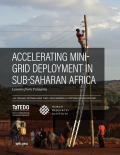
The report Accelerating Mini-grid Deployment in Sub-Saharan Africa: Lessons from Tanzania is the first major survey of Tanzania’s mini-grid sector.
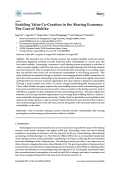
The disruptive rise of the sharing economy has inspired multiple social innovations embodying significant potential towards achieving urban sustainability in crucial areas like low-carbon mobility. Increasingly, consumers in such sharing systems participate in activities of value co-creation together with firms and peers, such as through enforcing rules that help maintain trust and reciprocity. Why do people choose to invest their time and energy in co-creating values that may benefit wider social and environmental sustainability in the sharing economy?
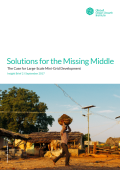
This Insight Brief Solutions for the Missing Middle: The Case for Large-Scale Mini-Grid Development demonstrates how mini grids powered by solar photovoltaics (PV) and energy storage systems (ESS) can provide energy access to 800 million people who do not live near a centralized electric grid.
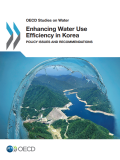
The report Enhancing Water Use Efficiency in Korea: Policy Issues and Recommendations, building on a policy dialogue with a range of stakeholders in Korea, analyses how economic policy instruments under the responsibility of the Korean Ministry of Land, Infrastructure and Transport can be adjusted to contribute to water policy objectives.
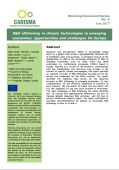
The CARISMA Project started in February 2015 and intends, through effective stakeholder consultation and communication, to ensure a continuous coordination and assessment of climate change mitigation options and to benefit research and innovation efficiency, as well as international cooperation on research and innovation and technology transfer.
